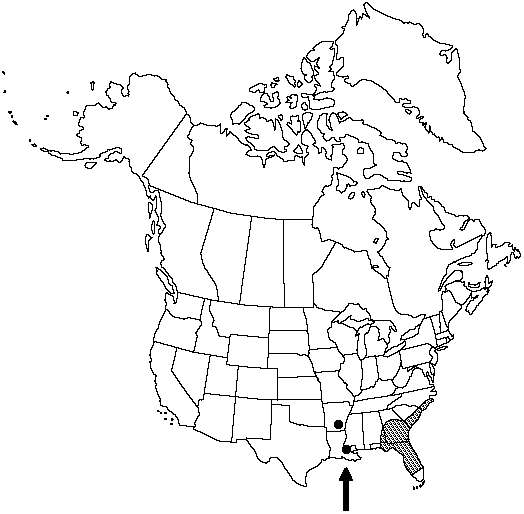Difference between revisions of "Dryopteris ludoviciana"
Ferns S. E. States 281. 1938.
imported>Volume Importer |
imported>Volume Importer |
||
| Line 59: | Line 59: | ||
|publication year=1938 | |publication year=1938 | ||
|special status=Endemic | |special status=Endemic | ||
| − | |source xml=https:// | + | |source xml=https://bitbucket.org/aafc-mbb/fna-data-curation/src/2e0870ddd59836b60bcf96646a41e87ea5a5943a/coarse_grained_fna_xml/V2/V2_272.xml |
|genus=Dryopteris | |genus=Dryopteris | ||
|species=Dryopteris ludoviciana | |species=Dryopteris ludoviciana | ||
Latest revision as of 20:22, 5 November 2020
Leaves somewhat dimorphic, green through winter, 35–120 × 10–30 cm. Petiole more than 1/4 length of leaf, scaly at base; scales scattered, brown. Blade dark green, lanceolate, pinnate-pinnatifid, herbaceous, not glandular. Pinnae nearly in plane of blade, lance-oblong; fertile pinnae in distal 1/2 of leaf, distinctly narrower than proximal vegetative pinnae (only in this species); basal pinnae lanceolate-oblong, much reduced, basal pinnules slightly shorter than adjacent pinnules, basal basiscopic pinnule slightly longer than basal acroscopic pinnule; pinnule margins distantly serrate. Sori midway between midvein and margin of segments. Indusia lacking glands. 2n = 82.
Habitat: Swamps and wet woods
Elevation: 0–100 m
Distribution

Ala., Ark., Fla., Ga., La., N.C., S.C.
Discussion
Dryopteris ludoviciana is endemic to southeastern United States. This diploid is one of the parents of D. celsa and D. cristata. It crosses with D. celsa to produce sterile hybrids.
Selected References
None.